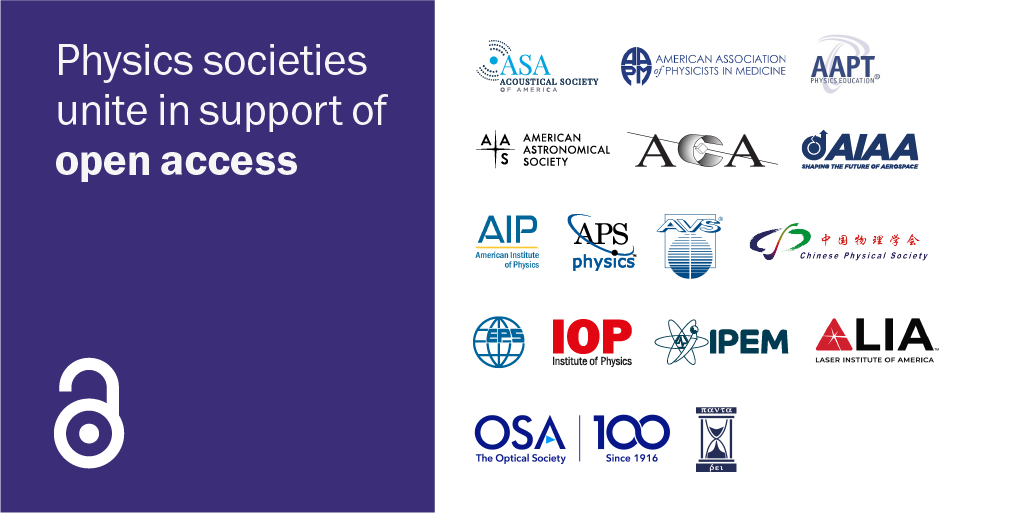
Today, LIA has joined forces with other major physics societies, which support physical science researchers with the publication of more than 75,000 peer-reviewed journal articles each year, to show our commitment to open access (OA) for physics research.
This group comprises 16 societies: the Acoustical Society of America, the American Association of Physicists in Medicine, the American Association of Physics Teachers, the American Astronomical Society, the American Crystallographic Association, the American Institute of Aeronautics and Astronautics, American Institute of Physics, American Physical Society, AVS Science & Technology of Materials, Interfaces, and Processes, the Chinese Physical Society, European Physical Society, Institute of Physics, Institute of Physics and Engineering in Medicine, the Laser Institute of America, The Optical Society (OSA), The Society of Rheology.
In a joint statement ‘Achieving greater open access in physics’, the societies detail how they have long embraced open science and OA to research results. Their proactive engagement, such as the launch of high-quality OA journals, switching hybrid journals to full OA and establishing transformative agreements, has contributed to an average annual growth in OA physics articles of more than 25%, compared with an overall average annual growth in physics articles of around 2%.
Having supported open publishing in physics for decades, the group’s common ambition is that all OA models provide financially sustainable support for author choice and the quality of peer-review and publication upon which excellent physics research relies.
The statement highlights how policies, such as the proposed cOAlition S Rights Retention Strategy, could undermine the viability of high-quality hybrid journals and the important role they play in balancing OA expansion with the researcher’s freedom to publish where they choose. It stresses the need for broader international financial support for OA to be in place before hybrid journals can fully transition, pointing out that adjustments to the global flow of funding will take time.
The group also acknowledges the strong culture of sharing results before peer review via preprint platforms and calls for funders to increase their recognition and encouragement for this practice in physics as a complement to peer-reviewed journal publication.
The joint statement is a call for a pragmatic, inclusive and sustainable approach to OA. It is also a commitment, as major physics societies representing the interests of their communities, to work together to make it happen.
Read the statement here: https://www.lia.org/open-access-lia-position-statement





